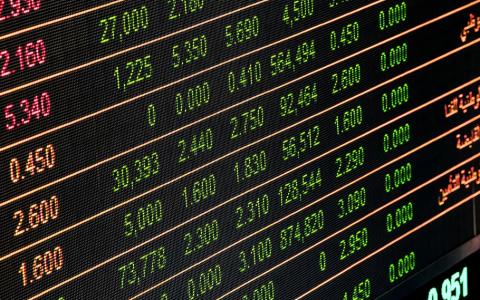
(Forbes) Watching Bill Hwang’s Archegos Capital Management hedge fund stumble triggers more traumatic memories than global finance veterans like to admit.
For many, parallels between the 1998 blowup of Long-Term Capital Management and Hwang’s forced liquidation of more than $20 billion worth of stocks on March 26 were too strong for comfort. The details differ, but the underlying forces—heavily leveraged positions colliding with the hubristic belief that past crises can’t happen again—are essentially the same.
And, unfortunately, another LTCM-type crash could be next.
That’s the message Nouriel Roubini is taking to television screens and podcasts around Manhattan, where the economist teaches at New York University’s Stern School of Business. It’s not easy to ignore Roubini, who’s among a very small group who can credibly claim to have predicted the 2008 global financial crisis. We do often, however, wish he were wrong.
Sadly, Roubini seems to be on to something as he warns ultralow to negative borrowing costs across the developed world and epic fiscal laxity pushed risk-taking into the stratosphere. Price-to-earnings ratios, cyclically adjusted, are, by Roubini’s calculation, the highest since both 1929 and the early 2000s.
“We’re seeing widespread frothiness, bubbles, risk-taking and leverage,” Roubini told Bloomberg last week. “Lots of players have taken too much leverage and too much risk and some of them are going to blow up.”
Roubini, who’s known as “Dr. Doom,” thinks the most obvious trigger will be U.S. Treasury yields rising above 2%. That could panic investors in all asset classes, sparking powerful waves of selling.
That’s especially so here in Asia, the region with the largest U.S. Treasury debt holdings. It could take on a momentum all its own, driving up rates on corporate, mortgage-backed, asset-backed and municipal debt. A jump in yields would force big revaluations of equity prices, too.
This surging-Treasury-rate scenario also spooks analysts at Goldman Sachs. Scott Minerd at Guggenheim Investments worries more Archegos-like shocks are possible as 2021 unfolds. And the prospect is sending waves of anxiety Tokyo’s way.
Hwang, a South Korean-born New Yorker, has a rather unusual background. In 2012, the alumnus of Julian Robertson’s Tiger Management hedge fund was essentially blacklisted after pleading guilty for insider trading. Family office Archegos, founded in 2013, was his comeback play.
Last month’s reckoning put a spotlight on global banks that started dealing with Hwang again, seduced by lucrative trading commissions. They include Nomura Holdings, Credit Suisse Group and Morgan Stanley. Since then, Nomura has been warning of “significant” losses. Its initial estimate was about $2 billion.
Mitsubishi UFJ Financial Group joined the list of global players facing big losses. On April 2, Japanese Finance Minister Taro Aso said the government is looking into losses incurred by Nomura, Mitsubishi UFJ and potentially other Tokyo giants. The Bank of Japan is on guard for any credit events in markets.
This moment is filled with irony. Japan avoided the worst of the 2008 Lehman Brothers crash by being mostly exposed to local markets. Since then, it has ventured overseas to reap greater returns. That pivot is now stress-testing a Japanese economy already nursing Covid-19-related shocks.
“The losses announced by some of Japan's financial institutions from the complex transactions with a U.S. client will test the robustness of their risk controls, especially in overseas markets,” Fitch Ratings says. “Expansion into offshore markets was one of the means of achieving higher profitability under a subdued domestic operating environment with structural challenges, such as persistent low interest rates and a declining population.”
Recent losses, Fitch says, “bring into focus these institutions’ risk appetite while in search of profit and whether they are adequately compensated for the risks involved over economic cycles.”
Hwang’s asset fire sale hit Asian companies far afield of Japan. On the chopping block: about $6.6 billion of New York-listed Baidu Inc., Tencent Music Entertainment Group and Vipshop Holdings Ltd.
Chinese internet companies, some listed in the U.S., have been major hedge fund targets in recent years. As U.S. growth gains steam, though, lots of that capital is having second thoughts about Chinese equities.
Why stay exposed to mainland corporate governance risks and the still-live possibility of delistings? One of the stocks that moved against Hwang was education company GSX Techedu, which Muddy Waters Research accused of exaggerating its sales by more than 70%.
This is the hyper-fragile setting Roubini is eyeing as he, once again, fears the worst.
“You’re dealing with peak growth momentum and we’re dealing with incredible pressure from a fund flow point of view as well, where you haven’t really seen major outflows out of bonds,” he said.
But what if we do? What if yields surge from Washington to Beijing, devastating a giant hedge fund or two?
The good news is that the global system is better positioned than it was in 1998 or 2008 to withstand some serious turmoil. The bad news is that another LTCM crackup could soon be in the cards. And at any moment.



